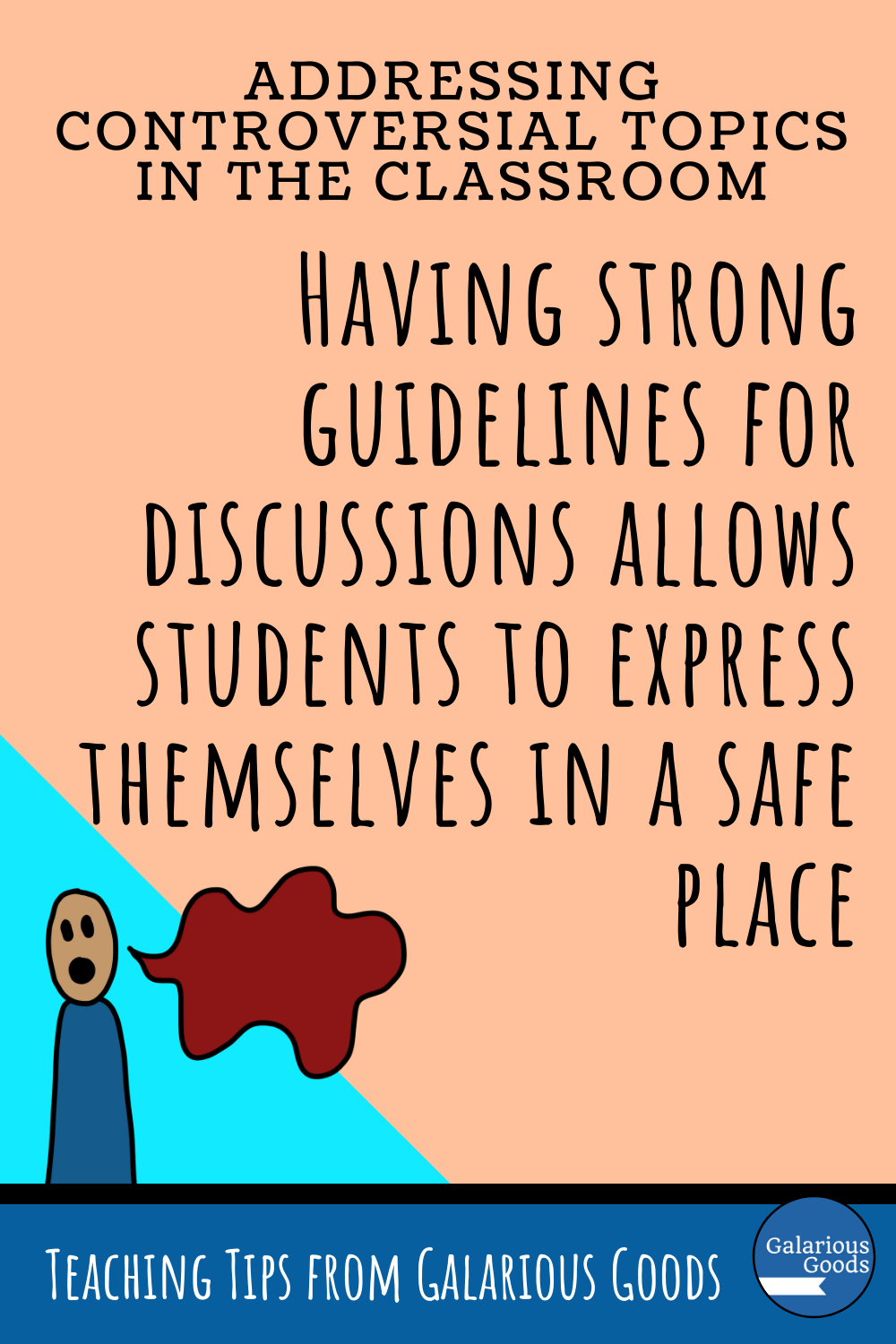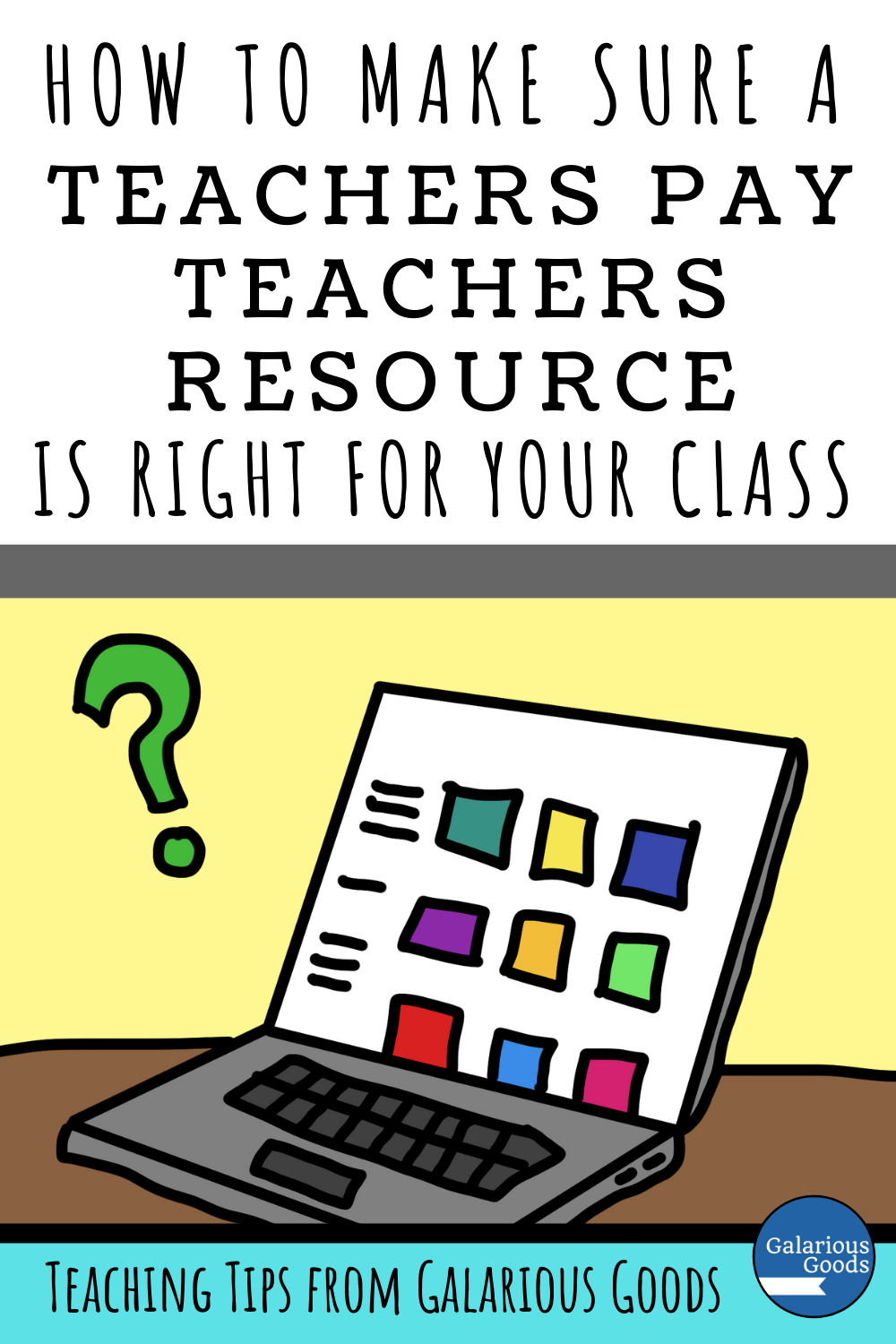Addressing Controversial Topics in the Classroom
/There's been a fair amount of media attention lately about whether teachers should discuss controversial topics in the classroom - and whether they should bring their own opinions into it. The intensity of the media focus can make teachers feel like they should avoid those topics altogether. However, sometimes those topics are unavoidable and many times those discussions are invaluable. The key to successfully discussing controversial or difficult topics is using tactics and guidelines which make it safe and useful for everyone involved - including you as the teacher.
1. Create a Caring, Compassionate Classroom
A classroom environment which promotes care and compassion for each other will make it easier when you approach difficult topics. It's easier for students to express different views and be open to listening to each other when they are being mindful of each other.
2. Let Parents Know What's Happening (When You Can)
Although some topics come up because of something on the news or because a student introduces it through a question or statement, other topics are part of the curriculum or planned lessons. Keeping parents and caregivers in touch with what is happening in the classroom (whether it is controversial or not) allows them to have a full understanding of the situation, rather than getting bits and pieces home through their children or the work in their books. It also establishes trust between you and them and is generally good practice.
3. Set Guidelines for Discussions
Having strong guidelines for discussions allows students to express themselves in a safe place. When students know what is and what isn't acceptable, they learn to consider their thoughts and frame them in a way which is less likely to cause harm to others. They may not always get it right - learning to say things in a considered way is something that even adults can struggle with! - but with time and consistency it will become easier for them. Guidelines can also apply to listening.
4. Encourage Students to Collect Both Facts and Opinions - And to Know the Difference Between Them
It can be very easy for discussions to become very opinion focused, but by encouraging students to collect facts - and opinions from other people - you can create a broader, more informed discussion. In a discussion on refugees, for example, students might research opinions from politicians, academics and activists. They might also look at the reasons why there are refugees and the movement of refugees throughout history. Historical opinions could also be discussed. The more students know, question and discuss, the more informed and thoughtful their own opinions will be.
5. It's OK to Have A View. It's OK to Share It. It's OK Not to Share It.
Some commentators believe that teachers shouldn't have a view on anything and should just 'get back to the teaching!' But that's not necessarily fair on students who should be exposed to a range of views from the people in their lives - including teachers - and should be able to see how people develop their views. By letting students know what your view is, and how you came to that point of view, you're providing them with more information as they make their way through their decision making processes to developing their own views.
It's also ok not to share your view. Sometimes it's not relevant or asked for. Sometimes you need to protect yourself. Sometimes you need to give the space to your students instead.
6. Protect Yourself
Unfortunately, some people thrive on controversy and they're only too happy to 'report' a controversial discussion to your administration, district, or worse - the media. Many times they do not have the full story and it can be a scramble to make sure that you and your actions are protected.
If a controversial discussion happens or topic comes up, it can be worthwhile to let your administration know. It lets them be prepared if someone approaches them and leaves them in a better position to assist you. It's also worth keeping notes in your planner or diary to refer back to if required.
If lessons around a controversial issue are planned, it might be worth working with another teacher to deliver material to the classes together. Having another informed adult working on the same material (or even in the same classroom) can let people outside the classroom know that this is a planned, organised event - not you just sharing your opinions willy nilly.
Finally, if you're in the position to join a teachers union, they're well worth joining. Many are created to look after your rights in the workforce, including your rights to teach material others might find controversial. Unions become stronger with their members, and many have other benefits beyond the protection element.


















